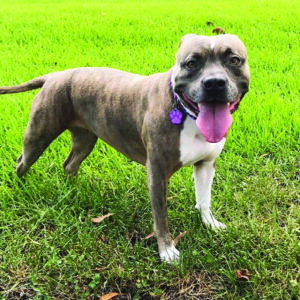AI Driven Precision Medicine Platform for Canine Cancer
FidoCure patient results are published and validated
Published April 28, 2023

Analyses of canine cancer mutations and treatment outcomes using real-world clinico-genomics data of 2119 dogs
Despite a growing number of targeted cancer treatments in development each year, few are able to reach cancer patients due to the rate at which evidence is generated from human clinical trials
Published July 6, 2023

Shared hotspot mutations in oncogenes position dogs as an unparalleled comparative model for precision therapeutics
New approaches to the development of cancer therapeutics are urgently needed to improve the current 89% failure rate of novel drugs in clinical trials, and to improve patient outcomes. Spontaneous cancer in companion animals represents a unique opportunity for investigation of novel therapeutics for human and veterinary use
Published September 21, 2023

Precision Medicine Tools Offer Veterinarians New Hope for Understanding Hemangiosarcoma
A study from researchers at Tufts University, Broad Institute of MIT and Harvard, and FidoCure by One Health Company demonstrated how a commercially available precision pet health platform can illuminate the complex landscape between genetics and disease outcomes for a common and aggressive cancer that affects millions of dogs.
Published January 10, 2024
Precision Medicine in Veterinary Science
There are many successes of precision medicine implementation in human oncology and it is therefore integrated into human cancer management. It is increasingly integrated into canine cancer management, with early evidence of its success.
FidoCure has sequenced, treated, and collected data from thousands of dogs and developed the largest proprietary cancer data set in the world.
FidoCure has sequenced, treated, and collected data from thousands of dogs and developed the largest proprietary cancer data set in the world.
FidoCure has sequenced, treated, and collected data from thousands of dogs and developed the largest proprietary cancer data set in the world.
FidoCure has sequenced, treated, and collected data from thousands of dogs and developed the largest proprietary cancer data set in the world.
We are transforming canine cancer care through ongoing scientific research and innovation in therapeutic treatments.

Dog cancer research advances pursuit of drugs for humans and canines
Published June 19, 2023 | Compelling genetic data, increased funding and growing collaborations in the past decade are pushing forward development of cancer drugs for both canines and humans

Dog cancer research advances pursuit of drugs for humans and canines
Published June 19, 2023 | Compelling genetic data, increased funding and growing collaborations in the past decade are pushing forward development of cancer drugs for both canines and humans
There’s no “one-size-fits-all” treatment for cancer. That’s why FidoCure® uses genomic testing to determine the best course of action for your dog’s cancer therapy – beyond standard chemo and radiation.

FidoCure® Approach: Genetic testing reveals which targeted therapies may work best for your dog
Precision medicine can offer a hopeful prognosis. FidoCure® was created by dog lovers and scientists on a mission to make effective canine cancer treatment accessible. Our process uses genomic testing in conjunction with tumor type to identify possible cancer-causing mutations. From there, we suggest targeted therapy to precisely attack the cancer cells.
Forrest was diagnosed with splenic cancer and given one month to live.
Through the targeted therapy suggested by FidoCure®, he lived happily for nearly 4 years past his diagnosis.


Forrest, Golden Retriever
Hemophagocytic Histiocytic Sarcoma
Thousands of dogs have benefited from FidoCure's AI driven approach when traditional treatments were limited

Toulouse
“Since starting treatment, Toulouse’s tumors have regressed. FidoCure® brought us hope for Toulouse when we thought we didn’t have any options left.” — Daniel, FL

Lizzie
“Thanks to FidoCure®, Lizzie is 100% active again, eating well, and in remission for 5 months.” — Kimberley and Francois, CT

Gracie
“[Our vet] told us about the One Health Company’s precision medicine solution, FidoCure®… Now, exactly two months later, Gracie’s cancer is in remission.” — The Gonzalez Family, FL
Real-World Evidence
Resources + Education
-
FidoCure Celebrates National Veterinary Technician Week
by Christina K. Lopes on September 19, 2024

